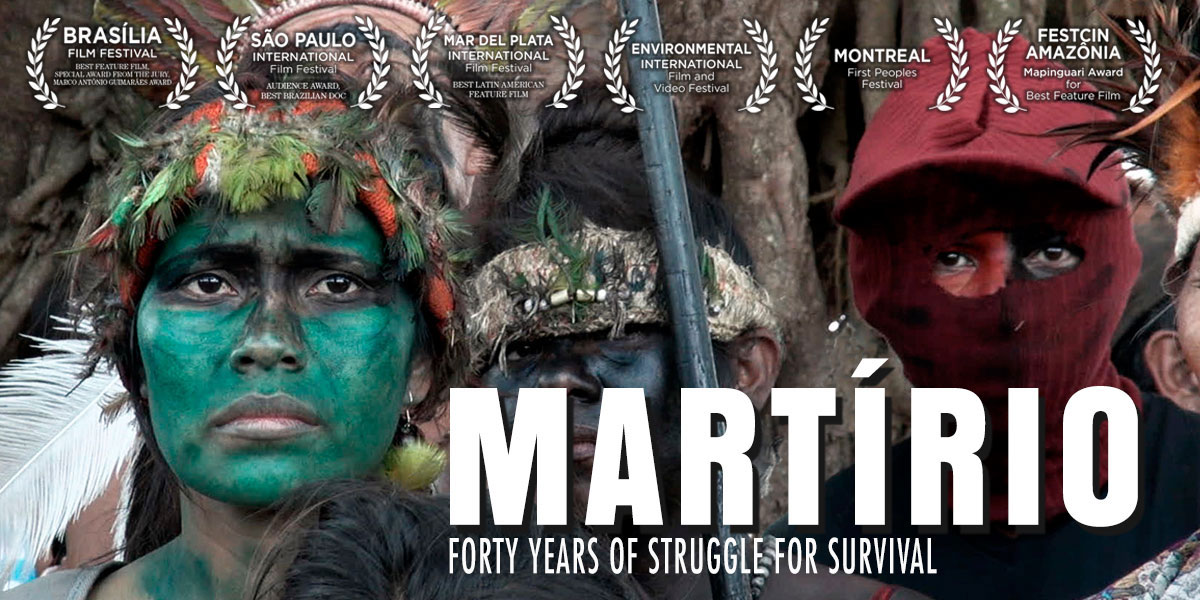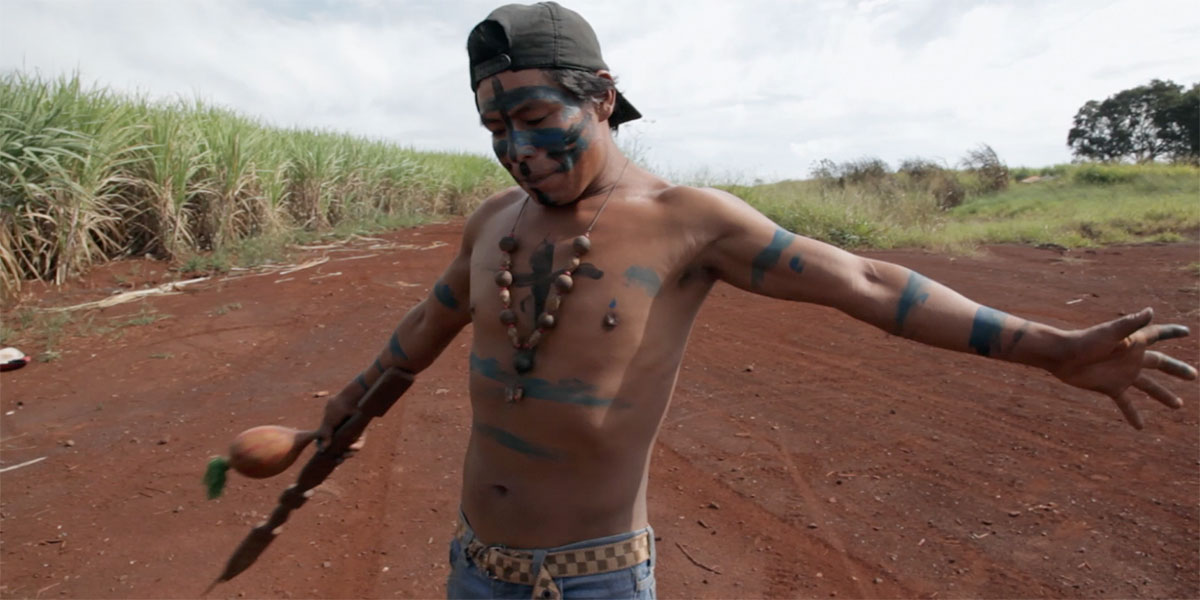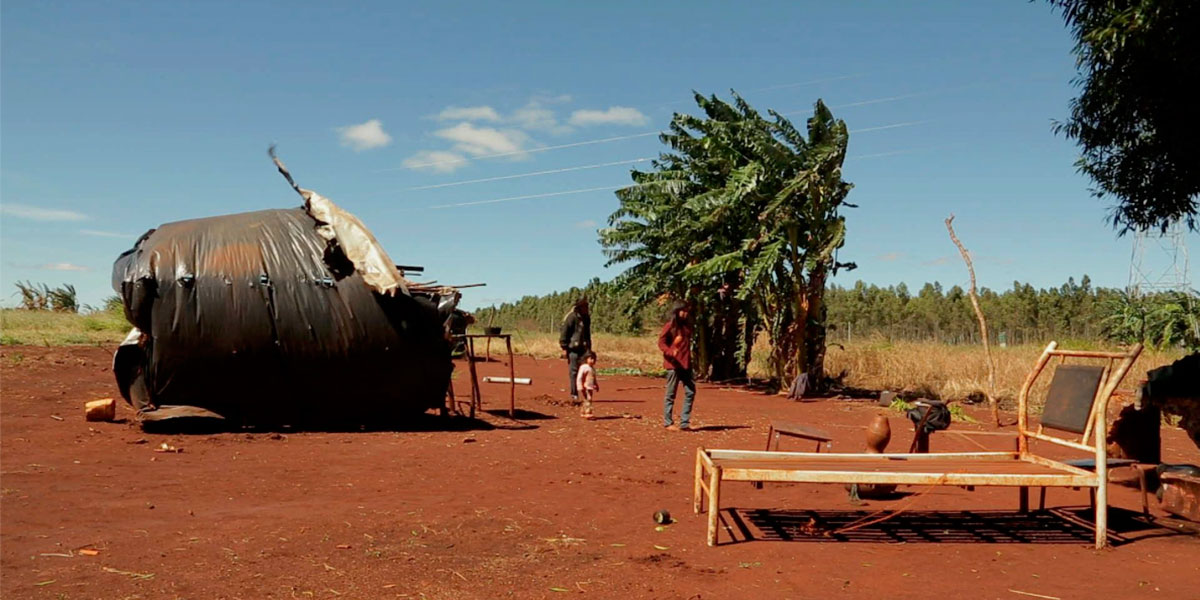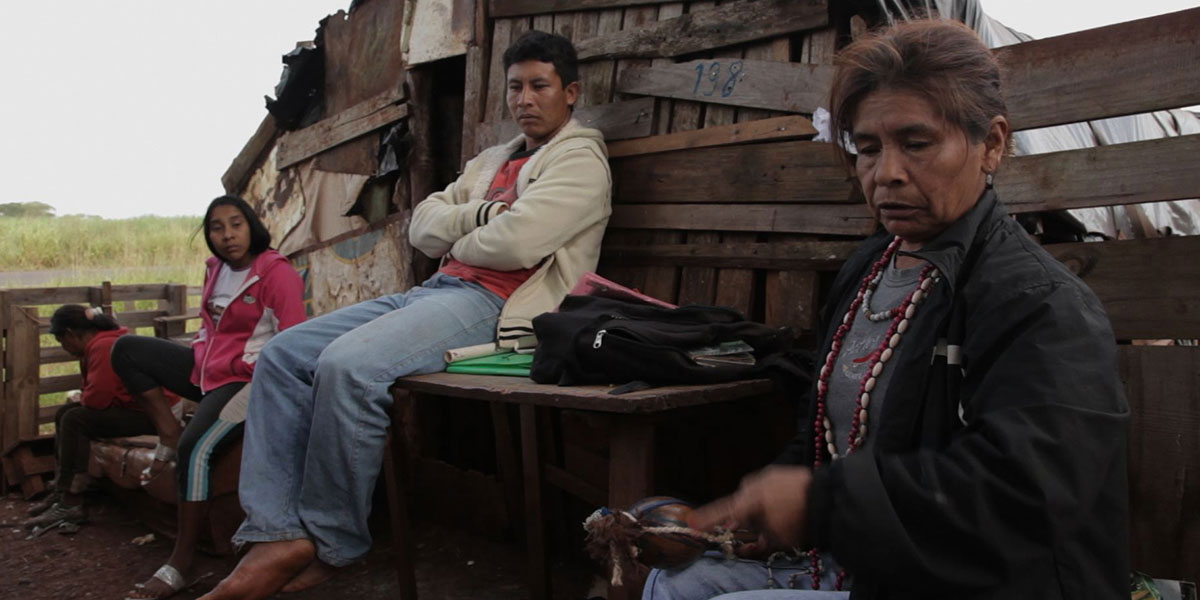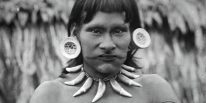With Celso Aoki, Myriam Medina Aoki, Oriel Benites, Tonico Benites and Guarani and Kaiowá communities of Mato Grosso do Sul state
Filmed over the course of 40 years, indigenous expert and filmmaker Vincent Carelli seeks out the origins of the Guaraní Kaiowá genocide. A conflict of disproportionate forces: the peaceful and obstinate insurgency of the dispossessed Guaraní Kaiowá against the powerful apparatus of agribusiness. While fighting against the Brazilian Congress in order not to be evicted from their homes, the 50.000 indigenous people demand the demarcation of the space that belongs to them.
With rigorous investigative work, this Brazilian director recorded the birthplace of the resistance movement in the 1980s and tells, with his own voice and those of the indigenous people, of the social and political injustices suffered. The stunning archival historical images, new footage, both color and black and white, hearings in Brazilian Congress, and even interviews with those opposed to the Guaraní Kaiowá’s rights, reveal the crudeness with which they coexist every day: among the violation of their civil rights and the fortitude with which they confront the usurpers.
This epic documentary has become a sensation in Brazil and the ultimate testimony that unifies these unheard voices by “ethnocide actions,” the cruel synthesis of a conflict without a foreseen solution in the near future.
